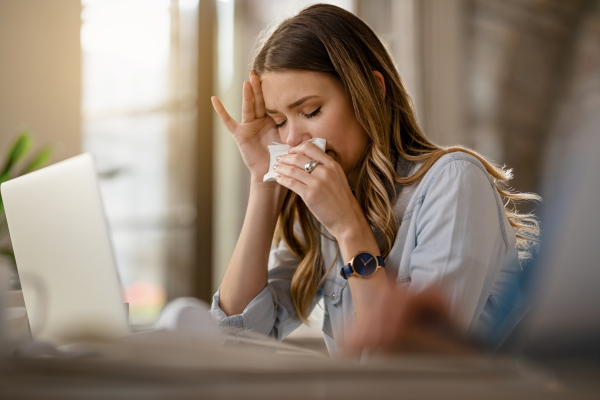- Europa
-
- Amstetten(7)
- Bad Schallerbach(1)
- Baden(4)
- Berg(1)
- Braunau am Inn(5)
- Bregenz(3)
- Bruck an der Mur(1)
- Graz(4)
- Hartberg(1)
- Innsbruck(5)
- Kemmelbach(1)
- Kitzbühel(4)
- Klagenfurt(5)
- Krems an der Donau(1)
- Kufstein(5)
- Leibnitz(1)
- Lienz(1)
- Liezen(1)
- Linz(5)
- Oetz(1)
- Punitz(1)
- Radstadt(1)
- Salzburg(5)
- St Polten(2)
- Steiermark(1)
- Steyr(1)
- Steyregg (1)
- Traun(3)
- Vienna(26)
- Villach(5)
- Völkermarkt(1)
- Wels(5)
- Wien(1)
- Wiener Neustadt(4)
-
- Aalst(1)
- Aarschot(2)
- Affligem(1)
- Anderlecht(5)
- Antwerp(11)
- Antwerpen(1)
- Arlon(6)
- Ath(2)
- Aubange(5)
- Bastogne (2)
- Blankenberge (1)
- Bruges(5)
- Brussels(15)
- Charleroi(5)
- Deinze(3)
- Dendermonde(1)
- Diest(2)
- Etterbeek(5)
- Geel(1)
- Genk(5)
- Gent(6)
- Geraardsbergen(1)
- Grimbergen (2)
- Hasselt(5)
- Heusden- Zolder(2)
- Ieper(1)
- Izegem(1)
- Knokke(4)
- Kortrijk(2)
- La Louviere(2)
- Leuven(5)
- Liege(4)
- Limburg(4)
- Lommel(1)
- Mortsel(1)
- Oostende(1)
- Turnhout(1)
-
- Chelyabinsk(1)
- Dubna(4)
- Gelendzhik(1)
- Irkutsk(1)
- Kaliningrad(1)
- Kazan(4)
- Krasnodar(3)
- Krasnoyarsk(1)
- Maykop(1)
- Moscow(50)
- Nizhny Novgorod(4)
- Novosibirsk(1)
- Omsk(1)
- Penza(1)
- Rostov-on-Don(2)
- Saint Petersburg(13)
- Samara(1)
- Saratov(1)
- Serpukhov (2)
- Sevastopol(3)
- Sochi(5)
- Stavropol(1)
- Surgut(1)
- Tyumen(2)
- Ufa(2)
- Vladivostok(3)
- Yekaterinburg (11)
-
- Alicante(8)
- Barcelona(113)
- Benalmadena(1)
- Benidorm(7)
- Castellón de la Plana(1)
- Denia(1)
- Estepona(1)
- Fuengirola (3)
- Ibiza(49)
- Jerez de la Frontera(1)
- Lanzarote(1)
- Las Palmas de Gran Canaria(5)
- Madrid(57)
- Malaga(9)
- Marbella(48)
- Murcia(1)
- Oviedo(1)
- Palma de Mallorca(48)
- Puerto Banus(3)
- Seville(1)
- Tarragona(1)
- Tenerife(7)
- Torrevieja(3)
- Valencia(9)
- Vigo(1)
- Zaragoza(1)
- Worldwide
Comprehensive Guide to Preventing and Managing ARVI
 Acute Respiratory Viral Infections (ARVI) can significantly impact your health and daily routine. Effective prevention and management are crucial for minimizing their effects. This guide provides detailed strategies to help you reduce the likelihood of contracting ARVI and offers practical advice for managing symptoms if you do become infected.
Acute Respiratory Viral Infections (ARVI) can significantly impact your health and daily routine. Effective prevention and management are crucial for minimizing their effects. This guide provides detailed strategies to help you reduce the likelihood of contracting ARVI and offers practical advice for managing symptoms if you do become infected.Understanding ARVI: An Overview
ARVI encompasses a range of viral infections affecting the respiratory system. Common examples include the flu and the common cold. These infections are typically characterized by symptoms such as cough, sore throat, and fever. Understanding how these viruses spread and manifest can help in devising effective prevention strategies.
Preventive Measures to Reduce ARVI Risk
1. Enhancing Personal Hygiene
One of the most effective ways to prevent ARVI is by practicing good personal hygiene. Regular hand washing with soap and water can significantly reduce the risk of infection. It’s also important to avoid touching your face, particularly the eyes, nose, and mouth, as viruses can easily enter the body through these areas.
2. Maintaining a Healthy Lifestyle
A robust immune system plays a critical role in warding off infections. Maintaining a balanced diet rich in vitamins and minerals, staying hydrated, and getting adequate sleep are foundational to a strong immune defense. Regular physical activity also contributes to overall health and resilience against illnesses.
3. Avoiding Close Contact with Sick Individuals
Minimizing close contact with individuals exhibiting symptoms of ARVI can help prevent the spread of the virus. If possible, maintain a safe distance from those who are ill and avoid sharing utensils or personal items. In public spaces, using tissues or elbows to cover sneezes and coughs can prevent the spread of airborne droplets.
4. Utilizing Preventive Health Measures
Vaccination can offer protection against certain strains of respiratory viruses, such as the influenza virus. Regular flu vaccinations, particularly during peak seasons, can significantly reduce your risk of severe illness. Additionally, ensuring good ventilation in living spaces and using air purifiers can help reduce the concentration of airborne viruses.
Managing ARVI Symptoms Effectively
1. Rest and Hydration
If you do contract ARVI, rest is essential for recovery. Your body needs time to fight off the infection, so prioritize adequate rest. Staying hydrated by drinking plenty of fluids helps to thin mucus and alleviate symptoms such as sore throat and congestion.
2. Symptom Relief Strategies
Over-the-counter medications can be useful in managing ARVI symptoms. Decongestants, cough suppressants, and pain relievers can provide temporary relief from discomfort. However, always follow dosage instructions and consult with a healthcare provider before starting any new medication.
3. Home Remedies and Comfort Measures
Certain home remedies can complement conventional treatments. For instance, warm teas with honey and lemon can soothe a sore throat, while steam inhalation can help with nasal congestion. Maintaining a humidified environment can also ease respiratory symptoms.
4. When to Seek Medical Attention
In most cases, ARVI symptoms can be managed at home. However, if symptoms persist or worsen, it is important to seek medical attention. High fever, difficulty breathing, or severe fatigue are signs that may require professional evaluation and intervention.









